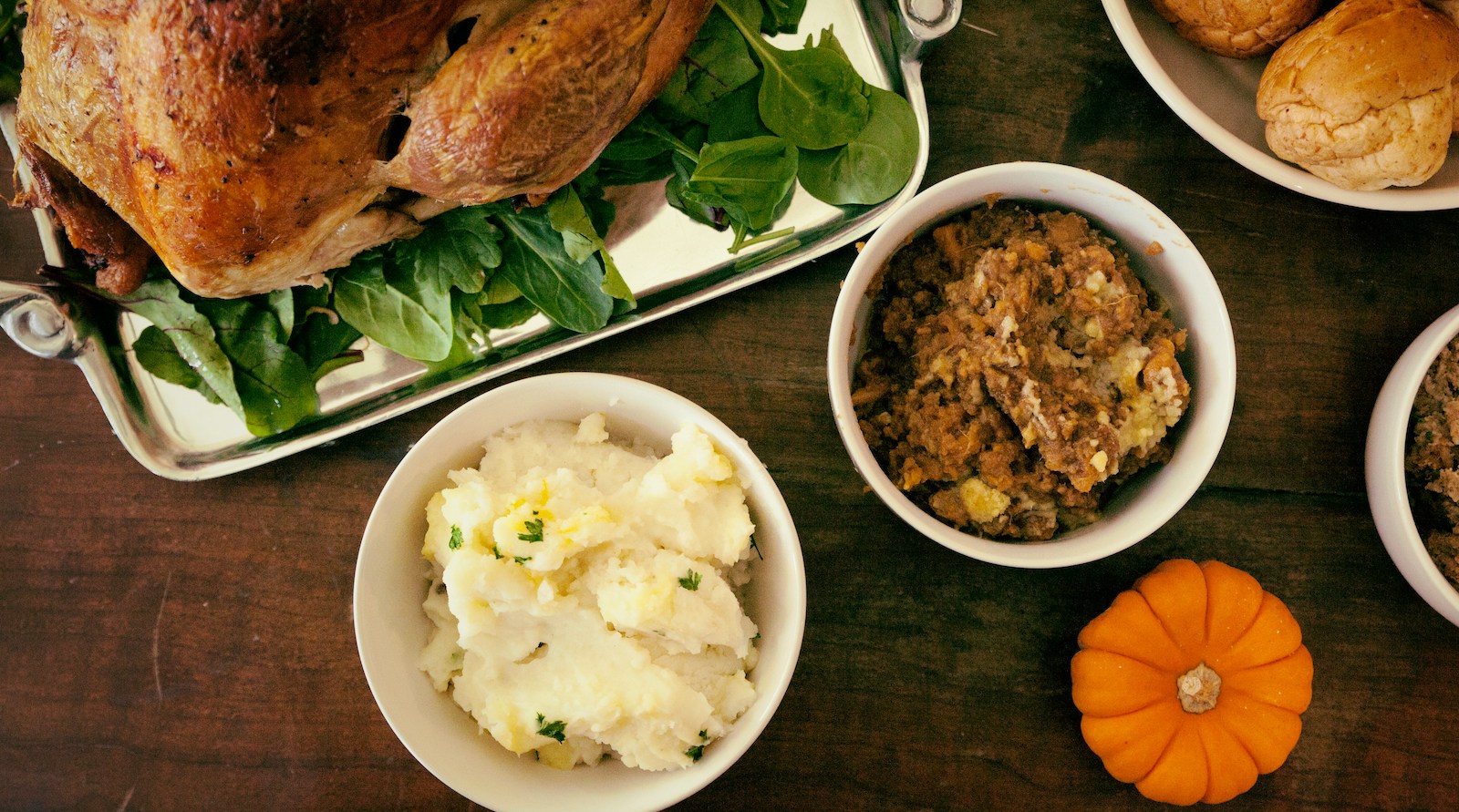The authors of Sacred Scripture are no stranger to food-based metaphors. The prophet Joel tells us that when God restores the kingdom it will be as if the hills flow with milk (Joel 3:18). Psalm 19 says that the words of the Lord are “sweeter also than honey, or drippings from the comb” (Ps 19:11). Perhaps, most deliciously of all, the Prophet Isaiah speaks of God preparing for his people a feast of “juicy, rich food and pure, choice wines” (Isa 25:6). All of these words strive to convey something of the richness, abundance, and nourishment God wants to provide his people.
When we try to speak about God and his mighty deeds, we struggle to find words that match the majesty of his actions and his power. Metaphors like these help us understand God’s incredible and immense love for us. This Thanksgiving Day, following in the time-honored tradition of food metaphors, I am going to compare God’s grace to gravy.
As a first comparison, like Isaiah’s “juicy food”, grace and gravy are both savory and rich. If you had to use food to describe the value, depth, and overflowing quality of God’s goodness, would you compare it to a watery broth, cold celery, or thick gravy? The relationship God promises us through his Son is one of incredible richness. He prepares a place for us in his inner life, the Trinity, which is the rich and never-ending source of all goodness and all truth. There we will find rest for our souls and perfect satiety that seeks for nothing more.
Second, grace, like gravy, is great on everything. A well-known Thanksgiving dinner strategy is to prepare your plate, then ride the gravy train over all of your food—turkey, stuffing, veggies, mashed potatoes. Instead of obscuring the delicious flavors below, the salt and spice of gravy enhance them in a way far beyond their natural taste. Gravy perfects the Thanksgiving food. This is an expression of the Thomistic principle that “grace does not destroy nature, but perfects it” (ST I q. 1, a. 8, ad. 2).
God’s grace is a participation in his interior life. When we receive his grace, we do not become less, but more alive! We are drawn closer to the fountain of life. With grace, we become more good, more true, more beautiful, and more like God. Look at the lives of the saints. They did not hate or seek to destroy their human nature but flourished through grace after the example of Jesus himself.
Lastly, grace, like gravy, renews what is dry, old, and otherwise undesirable. Turkey on its own, even at its first serving, tends to be dry. When day two of the Thanksgiving Octave hits, gravy turns into the essential restorative ingredient. The turkey is made new. So new, in fact, that many claim that Thanksgiving dinner tastes best when eaten as leftovers! Grace, similarly, when poured out upon our fallen nature, cleanses us of sins, restores us, and brings us closer to God than before. Psalm 104 puts it beautifully: “Send forth your spirit, they are created, and you renew the face of the earth.” (Ps 104:30). Grace makes new in us what was old, restores what was damaged by sin, and strengthens what was weak.
Grace is God’s good work in our lives. It is a total gift, freely poured out with healing effects that spring outwards even to friends and family. This Thanksgiving Day, I encourage you to dwell on these good gifts and recognize their origin in God, who is the source of all that is good. All of the goods we experience, even the smaller ones like gravy, point back to him. Our best response is a loving “thank you.”
✠
Photo by Megan Watson on Unsplash







